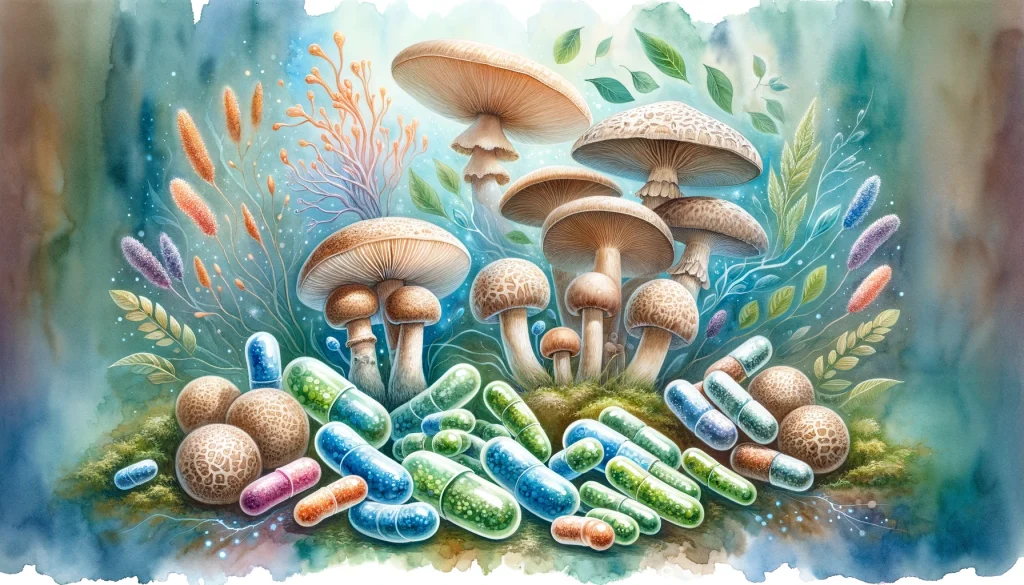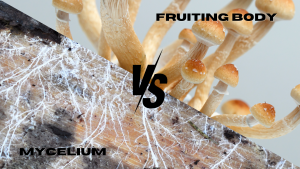The digestive system is a complete ecosystem. It is essential to the health of a person and effects almost every other system in the body. The digestive system carries out food digestion, absorption of nutritional ingredients and excretion of waste, as well as the production of vitamins in the vitamin group B, and vitamin K. Health of the digestive system in general, and the digestive process in particular, are dependent on the bacteria that are permanently present throughout the digestive tract. In the digestive tract, there is a layer of a wide variety of microorganisms called intestinal flora. Flora consists of friendly bacteria (probiotics), as well as bacteria and assorted single cells that are believed to promote illnesses (pathogens). Friendly bacteria (probiotics) compete with the pathogens for the living spaces and food sources in the intestine. The friendly bacteria create an environment that makes it difficult for the pathogens to exist in the intestine by producing substances that are resistant to these disease generators, and by decomposing sugars in the intestine that Candida feeds upon. Additionally, the presence of friendly bacteria improves the health of intestinal cells, strengthens the immune system in the intestine and the entire body, enhances metabolic function, and more…
Research in the field of functional nutrition, which began in the 1970s, found that while administering a food supplement containing friendly bacteria (probiotics), it is important to add nutrients to the bacterium in order to improve the ability of the bacteria to form colonies in the intestine. The researchers discovered two substances found to be effective in achieving this, namely Inulin and Oligosaccharides, which are the main nutrients used in supplements today. In modern research, the unique components in medicinal mushrooms and their beneficial effect on intestinal flora, have captured the attention of clinicians. The components that were found most interesting and relevant are polysaccharides, triterpenoids and glycoproteins.
In a variety of studies, it has been found that medicinal mushrooms have great prebiotic potential.
Mushroom fibers have a prebiotic quality, meaning that the fibers are a food substrate for the intestinal – friendly bacteria (probiotic). Studies found that a combination of prebiotic components derived from medicinal mushrooms, improves the function of the immune system in the intestine, reduces the
frequency of infection and inflammation in the intestinal cavity, and assists in lowering allergic reactions by improving digestion and intestinal motility.
Medicinal mushrooms contain an assortment of components with prebiotic qualities:
Chitin, Hemicellulose, α-Glucans, Mannans, Xylans, and Galactans
Chitin is an insoluble polysaccharide that constitutes about 80-90% of the weight of the dry material in the mushroom’s cell wall, with a ratio of 68-102 mg. per each gram of dried mushroom. Chitin is not digested by humans and has no therapeutic effect; however, it is defined as a fiber having prebiotic function. Most probiotic fibers belong to the family of beta glucans. Polysaccharides in medicinal mushrooms have lateral chains connecting them to the family of glucans { This is how the form of binding looks: β-glucans-1,3/1,6 }. Medicinal mushrooms rich in oligosaccharides are recognized in functional nutrition as probiotic bacteria feeders.
The medicinal mushroom Pleurotus Ostreatus is one of the richest in prebiotic components, with a concentration of 5.3 mg for each gram of dry Pleurotus. In comparison, the medicinal mushroom Shiitake (Lentinula Edodes) contains 2 mg for every gram of dry material. Research has found that daily consumption of the Pleurotus mushroom has a significant effect on the friendly bacterial population in the intestine. (1) Professor Synytsya from the Biochemical Research Institute in Prague proved in a study conducted in 2008, that the addition of the medicinal mushroom Pleurotus Ostreatus in its dehydrated form, to a substrate of probiotic bacteria, resulted in the proliferation of 9 different strains of probiotic bacteria of the following types: Enterococcus faecium, Bifidobacteria ssp., and Lactobacillus ssp. In addition, an increase was observed in the levels of short chained fatty acids (SFCA), which play an important role in the regeneration of bowel cells. The increase in SCFA levels indicates the ability of the probiotic bacteria to feed from fiber when the fatty acids are a by-product of digestion. (2)
A study conducted in 2013 by two medical centers (The Gastrointestinal and Pediatric Nutrition Unit at Harvard Medical School, and The Gynecology Unit at Boston College of Medicine), examined the effect of the polysaccharide PSP from the medicinal mushroom Trametes Versicolor (Coriolus Versicolor) on intestinal flora by testing the subjects’ stool samples. The study found a dramatic effect on the growth of probiotic bacteria of the type Lactobacillus
ssp. At the same time, a decrease was observed in the amount of pathogenic bacteria from the following types: Clostridium spp., Staphylococcus spp., Enterococcus spp. It became evident that the feeding process of the bacteria by the PSP caused a reduction in the level of PH (as a result of an increase in the quantity of SCFA and lactic acids in the intestine), which created a hostile environment to pathogenic bacteria. (3 )
Further to the prebiotic activity, medicinal mushrooms were found to have an adversative effect on pathogenic bacteria and Candida in the digestive system. Research conducted at the University of Seoul in the year 1996 examined the influence of 10 different varieties of medicinal mushrooms on the Helicobacter Pylori bacteria. The Helicobacter Pylori bacteria is found in the abdominal cavity, making it easy to check the direct effect of mushrooms on the bacteria. The mushrooms that demonstrated anti-pylori activity were the Reishi (Ganoderma Lucidum) and Trametes Versicolor (Coriolus Versicolor). The Trametes mushroom also helps to restore stomach lining and reduce acids. (4)
In conclusion, the combination of bacteria with medicinal mushrooms is a powerful synergistic union that improves the absorption of probiotic bacteria in the intestine and provides high quality nutrients to enrich the intestinal flora and improve general metabolism.











